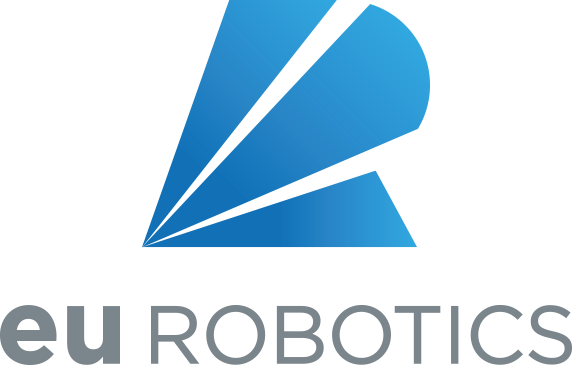Robotics research at the University of Ljubljana (UL) is being taken up at various faculties. The Robolab at the Faculty of Electrical Engineering has long been a leader in the field of human-machine motion analysis and artificial and natural motor control. The group has a strong reputation in robotics research and applications in clinical and industrial settings. Robolab members have developed innovative robotic devices and solutions for diagnosis and training in rehabilitation and sports. Technologies for haptic human-machine interfaces, wearable motion sensors (IMU) and psychophysiological sensors also appear in combination with virtual reality.
The Collaborative Robotic Centre, established at Robolab, is a unique space where academics, students and industry collaborate. The Robolab has also provided several complex assembly robot cells to Slovenian industry, including a large robotic telescopic handler for the construction industry and the Advanced Robotic Cell for quality control. The above topics were part of several EU/industry projects GENTLE/S, I-Match, Alladin, MIMICS, Evryon, CareTOY, CYBERLEG, CL++, TERRNET, Linarm++, CROPS, EOSystem, eAssembly and ARC-K.
One of the study programs at the Faculty of Electrical Engineering is also the Masters in Robotics, the only one in Slovenia since it began 35 years ago.
The Laboratory of Control Systems and Cybernetics at UL deals with modern methods of computer modelling, simulation and control systems. With a long tradition in the field, they have also been working on autonomous mobile systems for the past decade. In addition to more conventional approaches, they are also proficient in modern adaptive, predictive, multivariable, and hybrid methods of modelling and control, as well as AI such as soft logic, artificial neural networks, and expert systems.
The Faculty of Computer and Information Sciences at UL focuses, among other things, on various aspects of AI in data analysis. One of the labs that applies AI methods to computer vision is the Visual Cognitive Systems Laboratory. Using computer vision, deep learning, and cognitive robotics methods, they are targeting the needs of Industry 4.0.
Digitalization and digital twin technology as part of the building blocks of Industry 4.0 and the smart factory concept is the main topic of the LASIM laboratory at UL’s Faculty of Mechanical Engineering. This includes the integration of distributed control structures, the development of cyber-physical systems, the use of cloud computing in combination with edge computing, the integration of IoT and 5G, digital twins and digital agents with integrated AI-based control and decision algorithms. LASIM integrates all this into different manufacturing areas such as handling, assembly, robotics or logistics.
The University of Maribor (UM), Faculty of Electrical Engineering and Computer Science is one of the leading teaching and research institutions in the field of electrical engineering and computer science in Slovenia. The Institute of Robotics UM conducts basic and applied research in the areas of robot systems research and design, production automation, sensor systems, control theory, modelling, identification, computer process control, industrial robotics, servo systems, robot controllers and real-time controllers. They are known for advanced control algorithms for position, speed and torque control for use with various types of electric actuators and robotic mechanisms.
Author: Prof. Dr. Marko Munih, Head of RoboLab, University of Ljubljana.

